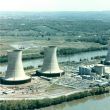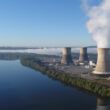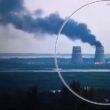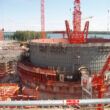Positive spin on GNEP ignores dangerous aspects of partnership
By Thomas B. Cochran, September 17, 2008
Stephen Goldberg has been careful to focus his discussion on the least controversial aspects of Global Nuclear Energy Partnership (GNEP), providing fuel services to emerging nuclear energy countries. He ignores the more troubling aspects of the partnership–its reliance on fast neutron reactors and a closed fuel cycle and developing, demonstrating, and deploying advanced nuclear fuel reprocessing technologies and fast reactors for this purpose. Establishing a reliable supply of nuclear fuel for emerging nuclear energy states is a worthy, though not new, objective, which is unlikely to impact states of concern such as Iran. Advanced fuel reprocessing technologies coupled with widespread reliance on fast reactors in self-selected countries is both unnecessary and doomed to failure for a variety of reasons.
To place Goldberg’s comments in perspective it would behoove those less familiar with GNEP to first read the Energy Department’s GNEP Strategic Plan, particularly the objectives under the heading “1.2 Principles.” There you will find establishing fuel supply arrangements to be the fourth of six objectives. The primary objective of those who first promoted GNEP was to reduce the requirements for geologic disposal of spent fuel by selectively separating plutonium and long-lived actinides and burning them in a fleet of fast reactors. This part of the GNEP vision is a proposed marriage of two failed technologies–fast reactors and reprocessing.
As has been noted by Frank von Hippel, co-director of Princeton University’s Program on Science and Global Security, the GNEP vision of burning the long-lived actinides, requires for every 100 thermal reactors of the type used throughout the United States today, some 40-75 new fast reactors of similar capacity. The commercial use of large numbers of fast reactors for actinide burning is unlikely to occur because–to borrow observations made by U.S. Navy Admiral Hyman Rickover more than 50 years ago–fast reactors have proven to be “expensive to build, complex to operate, susceptible to prolong shutdown as a result of even minor malfunctions, and difficult and time-consuming to repair.” The development of fast reactors to breed plutonium failed in the United States, the United Kingdom, France, Germany, Italy, and Japan. I would argue it failed in the Soviet Union despite the fact that the Soviets operated two commercial-size fast breeder plants, BN-350 (now shut down in Kazakhstan) and BN-600 (still operational in Russia), because the Soviet Union and Russia never successfully closed the fuel cycle and thus never operated these plants using MOX (mixed-uranium and plutonium oxide) fuel.
Relative to the existing open fuel cycle, the use of a closed MOX fuel cycle in thermal reactors has proven to be more costly and less safe. It leads to greater routine releases of radioactivity into the environment, greater worker exposures to radiation, larger inventories of nuclear waste that must be managed, and it doesn’t appreciably reduce the geologic repository requirements for spent fuel or high-level nuclear waste. GNEP’s advanced reprocessing technologies–essential to the success of the GNEP vision–are unlikely to reduce the repository requirements because fast reactors will not be deployed in large numbers. Moreover, the advanced reprocessing technologiers are even more costly than the conventional PUREX method and produce even larger inventories of intermediate and low-level nuclear wastes.
The closed fuel cycle technologies required by GNEP pose greater proliferation risks than the once-through fuel cycle. Even though GNEP’s ambitious vision of deploying new reprocessing plants and fast reactors in large numbers will surely fail to materialize, the partnership’s research program will encourage in non-weapon states the development of research facilities well suited for plutonium recovery, i.e., small hot cells and even larger reprocessing centers, as well as the training of experts in plutonium chemistry and metallurgy, all of which pose grave proliferation risks.
Topics: Nuclear Energy
Share: [addthis tool="addthis_inline_share_toolbox"]














